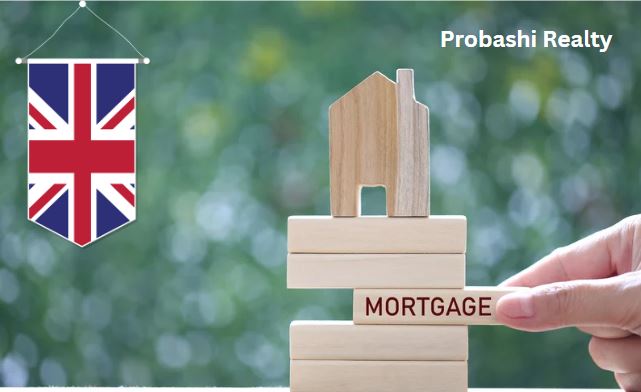In the UK, a mortgage is a significant financial commitment undertaken by individuals seeking to purchase property. It typically involves borrowing money from a lender, such as a bank or building society, to buy a home. The borrower then repays the loan over a set period, usually ranging from 25 to 35 years, with interest. Mortgages in the UK can be fixed-rate, where the interest rate remains the same for a specified period, or variable-rate, where the rate can fluctuate according to market conditions. Lenders often require a deposit, usually ranging from 5% to 20% of the property’s value, although higher deposits can sometimes secure better interest rates.
Mortgage Types:
- Fixed-Rate Mortgages: With a fixed-rate mortgage, the interest rate remains constant for a predetermined period, typically between two to five years. This provides stability and predictability in monthly repayments, regardless of changes in the broader interest rate market.
- Variable-Rate Mortgages: Variable-rate mortgages have interest rates that can fluctuate in line with changes in the Bank of England’s base rate or the lender’s standard variable rate (SVR). While these mortgages may offer lower initial rates, they also carry the risk of increased repayments if interest rates rise.
Mortgage Affordability:
- Affordability Assessment: Lenders conduct affordability assessments to determine how much they are willing to lend you. This assessment considers your income, regular expenditures, debt obligations, and other financial commitments.
- Income Multiples: Lenders often use income multiples (typically around 4-4.5 times your annual income) to calculate the maximum loan amount you can borrow.
For UK mortgage tips:
-
Improve Your Credit Score: A higher credit score can often secure better mortgage deals, so make sure your credit report is accurate and up-to-date.
-
Save for a Deposit: The larger your deposit, the better mortgage rates you can access, so start saving early to increase your buying power.
-
Shop Around: Don’t settle for the first mortgage offer you receive. Compare rates and terms from different lenders to find the most favorable deal for your circumstances.
-
Consider All Costs: Remember to factor in additional costs such as legal fees, survey costs, and stamp duty when budgeting for your mortgage.
-
Think Long-Term: Consider not only your current financial situation but also how your circumstances may change in the future. Opting for a mortgage with flexibility can be beneficial in the long run.
-
Seek Professional Advice: Mortgage brokers can offer valuable insights and help navigate the complex mortgage market, ensuring you find the best option tailored to your needs.
-
Read the Fine Print: Before signing any mortgage agreement, thoroughly review the terms and conditions to understand any potential fees, penalties, or limitations associated with the loan.
-
Factor in Other Expenses: Beyond the mortgage repayments, consider ongoing homeownership costs such as property taxes, insurance, maintenance, and utilities. Ensure these expenses fit comfortably within your budget.
- Boost Your Deposit: Aim to save as large a deposit as possible to access more competitive mortgage rates and potentially lower monthly payments.
- Understand Mortgage Fees: In addition to interest rates, be aware of any arrangement fees, valuation fees, and early repayment charges associated with the mortgage. These can significantly impact the overall cost of borrowing.
- Maintain Stable Employment: Lenders prefer borrowers with a stable employment history, as it indicates financial reliability. Avoid changing jobs shortly before applying for a mortgage, if possible.
- Review Your Finances Regularly: Periodically review your mortgage and financial situation to ensure it remains suitable for your needs. You may consider remortgaging to take advantage of better deals or adjust your repayment strategy as circumstances change.
By understanding the intricacies of UK mortgages and following these tips, you can make informed decisions to secure the right mortgage for your home purchase while managing your finances effectively.


